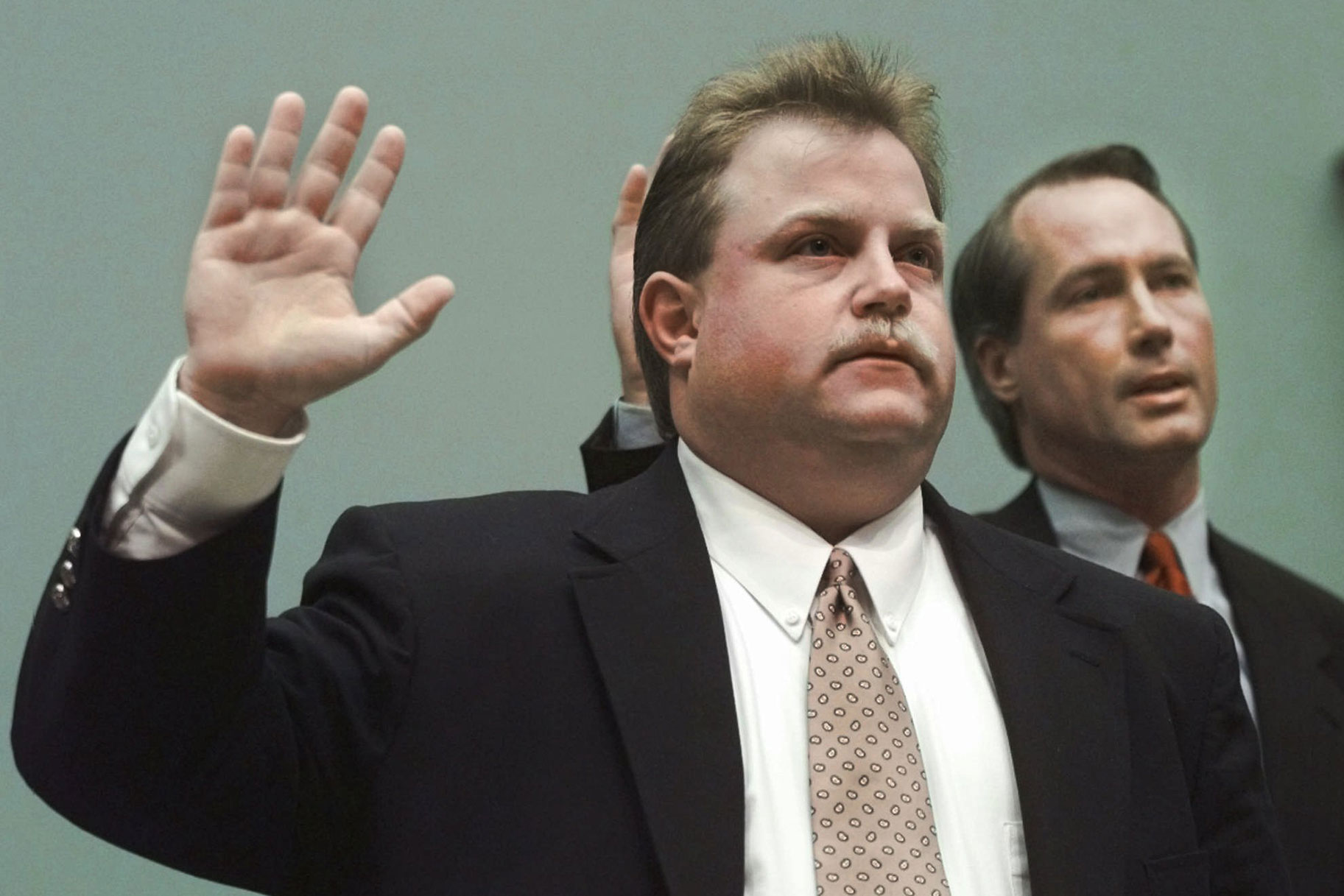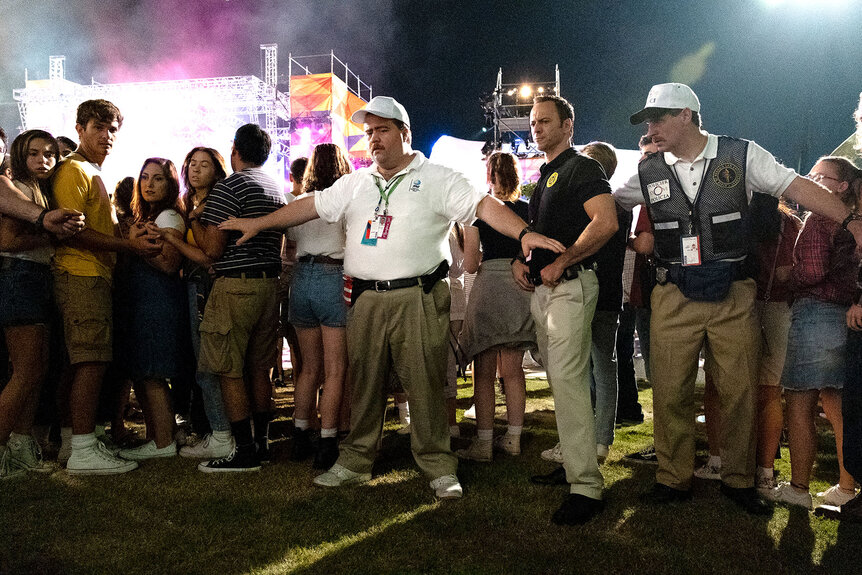Create a free profile to get unlimited access to exclusive videos, breaking news, sweepstakes, and more!
How Did Richard Jewell Get A Reputation As An Overzealous Police Wannabe?
Richard Jewell, once eyed as the Olympic bomber, was previously accused of overstepping his authority in law enforcement and security jobs.

Richard Jewell was once eyed as the possible 1996 Olympic bomber and to some, he looked pretty guilty.
But he didn't plant the explosive device at Atlanta's Centennial Park on July 27, which left 111 injured and two dead (one of whom was a cameraman who suffered a heart attack while running to the site of the blast). Rather, he actually discovered it and in doing so he prevented a far greater loss of life as he and others on site were able to clear the immediate area surrounding the bomb.
Jewell was working security when he noticed the explosive-laden backpack planted by domestic terrorist Eric Robert Rudolph. It would take years before Rudolph was officially recognized as the Olympic bomber and in the the immediate aftermath, suspicion quickly fell on Jewell.
Clint Eastwood’s new movie “Richard Jewell,” based on the events surrounding the case, show how the FBI zeroed in on him. In the film, they felt he fit the profile of a police wannabe craving hero status.
In the movie, the president of Piedmont College, where Jewell had previously worked as a security guard, actually tipped off the authorities that Jewell had behaved inappropriately during his time at the school and that maybe he should be looked at as a possible suspect.
In an almost comical scene, the college president reprimanded Jewell for harassing college kids over beer cans and for pulling over vehicles off-campus on the highway.
Did that happen in real life?
Apparently yes.
Just like in the movie, Jewell did indeed pull over cars on the highway and he did write super-long, detailed reports over minor incidents at the school, according to a 1996 Atlanta Magazine story. He was forced to resign from his post at the school just months before the Olympic bombing.
In a 1996 interview with "60 Minutes," Jewell said his relationship with the college soured because officials didn't like the publicity that came from the drugs and drunk-driving arrests he was making.
After Jewell was cleared as a suspect in the bombing, he actually successfully sued Piedmont College President Ray Cleere, who had been quoted in the Atlanta Journal-Constitution calling Jewell a "badge-wearing zealot" who "would write epic police reports for minor infractions," according to a 1997 Washington Post article.
There were other examples of Jewell's alleged eagerness to project authority.
Before working at the college, Jewell served as a security guard at an apartment complex where he lived with his mother. Seven years before the bombing, he received a complaint about rowdiness at the complex’s hot tub. Jewell then allegedly went to the hot tub armed with a 9mm handgun and a pair of handcuffs, according to Atlanta Magazine. He arrested that man for public drunkenness, according to that report.
However, the incident resulted in Jewell's own arrest for impersonating a police officer. At the time, though, he was also working as a deputy and jailer for the Habersham County Sheriff’s Department, a spokesperson from the department told Oxygen.com. His lawyer Watson Bryant told the magazine Jewell was only arrested because "he and the [responding] DeKalb cop didn’t get along — the guy’s got to show Richard who’s in charge."
More than 70 residents of the apartment complex signed a letter in support of him. He ended up pleading guilty to a lesser charge of disorderly conduct, was placed on probation, and underwent a psychological evaluation, according to Atlanta Magazine.
In the film, Jewell is portrayed as having an arsenal of firearms in his home, which the FBI viewed as a red flag. While it’s unclear how many guns he owned in real life, he did serve as a training officer and firearms instructor, the New York Times reported after his death.
He went on to hold several police jobs after he was cleared as a possible suspect in the 1996 bombing. He worked as a sheriff's deputy for the Meriwether County Sheriff’s Department in Georgia since 2003, the Los Angeles Times reported.
“I always thought he was a good officer,” Sheriff Steve Whitlock told the outlet in 2007. “He loved law enforcement. That’s what he ate and slept: law enforcement.”
He was fully exonerated with Rudolph's conviction in 2005.
Jewell died two years later. He reportedly had been suffering from health complications stemming from diabetes, the New York Times reported.


























